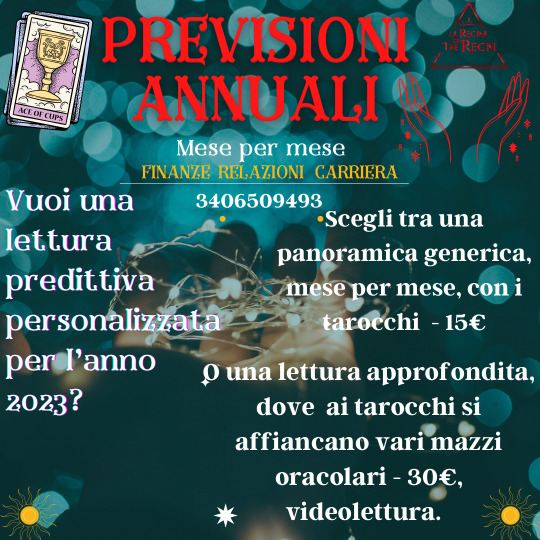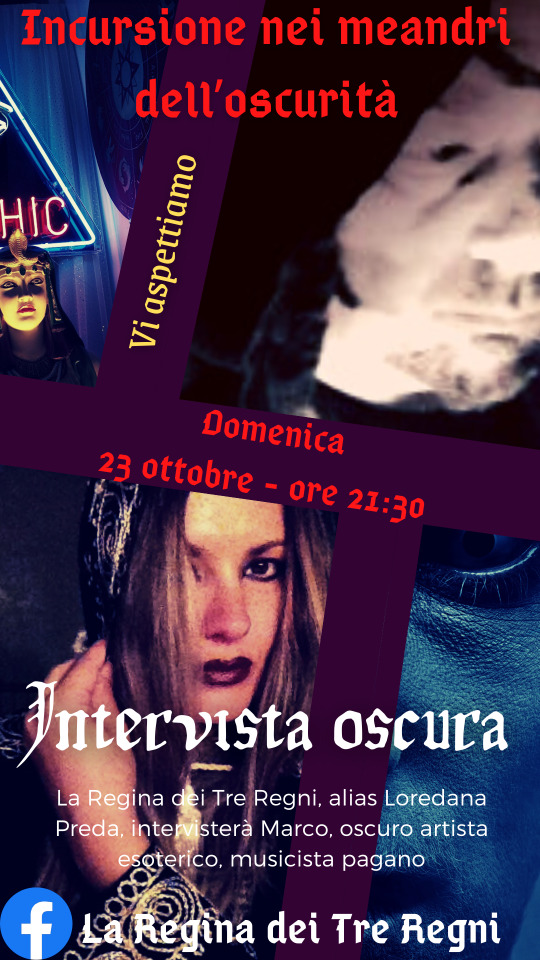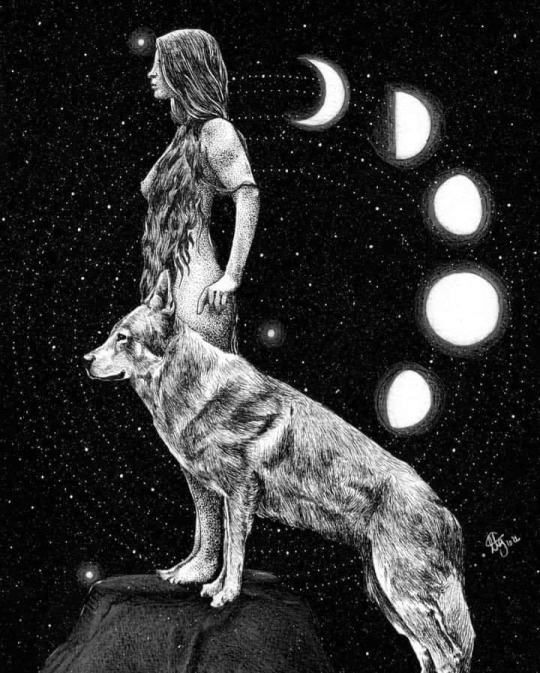Don't wanna be here? Send us removal request.
Text
ultimate character development template
basics
name: meaning of name: nicknames/titles: age: gender: location: birthday: strengths + example where it's shown: weaknesses + example where it's shown: how it affects others:
emotional depth
attachment style + how it manifests in the story: physical fear: emotional/abstract fear: happy memory: sad memory: object of significance: philosophical outlook/belief: what characters are ignorant about themselves: how confident are they: goal: long-term dreams: what they're embarrassed/ashamed to tell others about: regrets: source of pride: source of misery: what they admire above all else: do they believe in fate:
personality
mbti: enneagram: big five: character archetype: star sign: who they pretend to be on the outside: who they actually are/how they feel towards the mask: mental health conditions: how it manifests for them: iq: eq: humour: reputation:
habits
bad habits: mannerisms when stressed: mannerisms when content: mannerisms when scared: mannerisms normally: verbal mannerisms/distinctive speaking style: how do they move across a room: what do they say and what remains unsaid: how they express love: hobbies:
appearance
defining features: eye shape + colour: hair texture + colour: skin texture + tone: vibe: height: build: clothing: any bodily disfigurement (scars, etc.): overall attractiveness: their opinion on their appearance: appeals to:
relationships
who they trust most: what they wish they could do for them: what's holding them back: who they hate most: what they wish they could do to them: what's holding them back: relationship with the protagonist: relationship with the antagonist: siblings: relationship with them: parents/step-parents: relationship with them: previous broken relationships: why did it break: what others expect of them: who believes in them: their mentor character/who they look up to: political/religious/other affiliations: what makes them different from every other character: non-human relationships + why: romantic "type" + why: relationship dynamics:
backstory/background
primary emotion towards their past: primary feelings while in their past: where did they grow up: defining incidents: earliest childhood memory: saddest memory: happiest memory: major accomplishments: their opinion on it: notable people in their backstory: effect on them today: trauma: what have they already lost: financial circumstance:
progression
why are they important (eg. why're they the only one able to do something?): what do they learn about themselves throughout the story: what do they learn about the world: how do they feel towards their newfound knowledge: character arc (positive, negative, neutral): how relationships change because of their actions: what mistakes do they make: what scene is their character highlighted: do they get what they want: why or why not: what happens to them after the story ends:
16K notes
·
View notes
Note
other words to use instead of walk?
Advance - to move forward; proceed
Amble - to go at or as if at an easy gait
Canter - to move at or as if at a canter (i.e., a 3-beat gait resembling but smoother and slower than the gallop)
Footslog - to march or tramp through mud
Hike - to take a long walk especially for pleasure or exercise
Journey - travel from one place to another
Lumber - to move ponderously
March - to move in a direct purposeful manner
Meander - to wander aimlessly or casually without urgent destination
Mosey - to move in a leisurely or aimless manner
Pace - to walk with often slow or measured tread
Pad - to traverse on foot
Parade - to march in or as if in a procession
Patrol - keep watch over (an area) by regularly walking or traveling around or through it
Perambulate - to travel over or through especially on foot
Plod - to walk heavily or slowly
Prance - to walk or move in a spirited manner
Promenade - take a leisurely public walk, ride, or drive so as to meet or be seen by others
Prowl - to move about or wander stealthily in or as if in search of prey
Ramble - to move aimlessly from place to place; to explore idly
Roam - to go from place to place without purpose or direction; also to travel purposefully unhindered through a wide area
Saunter - to walk about in an idle or leisurely manner
Shamble - to walk awkwardly with dragging feet
Shuffle - to move or walk in a sliding dragging manner without lifting the feet
Slog - to plod heavily
Stalk - to walk stiffly or haughtily
Step - to move (the foot) in any direction
Stride - to move over or along with or as if with long measured steps
Stroll - to walk in a leisurely or idle manner
Strut - to walk with a proud gait
Stump - to walk over heavily or clumsily
Toddle - to walk with short tottering steps in the manner of a young child
Tour - make a tour of (an area); a short trip to or through a place in order to view or inspect something
Traipse - to walk or travel about without apparent plan but with or without a purpose
Traverse - to move or pass along or through; to move back and forth or from side to side
Tread - to step or walk on or over
Trek - to make one's way arduously
Troop - to go one's way
Trudge - to walk or march steadily and usually laboriously
Wander - to move about without a fixed course, aim, or goal
Hope this helps. If it inspires your writing in any way, please tag me, or leave a link in the replies. I would love to read your work!
3K notes
·
View notes
Text
ADHD Witch Tips
We need more adhd witch tips so here, have these. These are the things I have learned and seen done over the past 3 and a bit years of practicing witchcraft. As always, if you have anything to add, please comment them and I'll add them to the list with credit to you and a link to your blog!
Make witchy playlists with intention. Music is the most accessible way of doing magic in my opinion, especially if you're using spells that already exist. You can listen to these while working, traveling or just doing things around the house. If you sing along then you're adding to the manifesting power of the playlist!
Use really large spell candles so that you don't have to make a new one everytime you want to do a spell. I used to have 1 really big protection spell candle that I would light daily. Not having to make a new candle every time made me so much more likely to practice
Learn to meditate. I know, I know, hear me out. This is less of a witch tip and more of a mental health thing. You can meditate while colouring in, listening to music, cleaning, going for a walk. You don't have to sit down with your legs crossed. Mediation is an important skill that none of us do regularly enough.
stop caring about aesthetics. Are they nice? yes! absolutely! but unless it makes you more likely to practice then it's not worth it. caring too much about how your craft looks can also lead to burn out.
Be aware of your energy levels. Burn out is a serious issue among the neurodivergent witch community. Rest and pacing yourself is just as important as actually practicing.
Audio books <3333333
Try to combine your hyperfixation and witchcraft practice. This could mean using sigils in fanart or dedicate your writing to a deity.
Use hearth craft as a way to motivate you to clean your home or to cook meals/eat.
Have affirmations on your phones home screen so whenever you unlock your phone you reminded of your intentions
2K notes
·
View notes
Text
0 notes
Text
if you write a strong character, let them fail.
if you write a selfless hero, let them get mad at people.
if you write a cold-hearted villain, make them cry.
if you write a brokenhearted victim, let them smile again.
if you write a bold leader, make them seek guidance.
if you write a confident genius, make them be wrong, or get stumped once in a while.
if you write a fighter or a warrior, let them lose a battle, but let them win the war.
if you write a character who loses everything, let them find something.
if you write a reluctant hero, give them a reason to fight.
credit:@aj-eddy
11K notes
·
View notes
Text
Advice for Creating a Magic System
As a fantasy author, I thought I'd share my 5 tips for creating a captivating magic system.
1. Are you writing low fantasy or high fantasy?
Firstly, it's good to know from the get-go whether you're creating a magic system for a low fantasy or high fantasy story.
Low fantasy doesn't necessarily mean there are less fantastical elements or that the story has to take place in a version of the real world. Low fantasy simply indicates that the fantasy elements/magic is not commonplace in that world. Magic and other fantasy elements exist, but only a privy few know about it.
Examples of low fantasy stories include Harry Potter by She Who Shall Not be Named, the Mortal Instruments by Cassandra Clare, Ninth House by Leigh Bardugo, Twilight by Stephenie Meyer and my book To Wear A Crown.
High fantasy, on the other hand, indicates that the fantastical elements and magic are known about and commonplace in that world. The people of the world know that magic exists, that there are fantastical beings, other races etc.
Examples of high fantasy stories include Eragon by Christopher Paolini, Crescent City by Sarah J Maas, The Lord of the Rings by J.R.R Tolkien, and Red Queen by Victoria Aveyard.
2. Hard magic systems vs soft magic systems
The next thing that's vital to decide is whether you're creating a hard or soft magic system.
A hard magic system has built-in limitations. There are certain things that magic can do and that's it. Examples of stories with hard magic systems include Avatar: The Last Airbender and Shadow and Bone by Leigh Bardugo.
A soft magic system doesn't have inherent limitations in relation to what it can achieve. Examples of soft magic systems include Eragon, Harry Potter and The Lord of the Rings.
3. What can magic do?
Now that you know whether you're writing low or high fantasy, and whether you're working with a hard or soft magic system, it's time to create some magic!
This is the part where I can't give you too much guidance, because it's all about your creativity.
What do you want magic to look like in your story? What do you want magic to be able to achieve? How big of a role do you want magic to play in the story and your characters' lives?
Do you want different classes of magic wielders, each with mastery over their own element? Do you want magic to be a flexible tool that can be used to achieve almost anything? Do you want your magic to be limited to telepathic actions or creating portals? Do you want different people to have power over different aspects of nature or different magical disciplines?
Can wielders use magic without any tools, or do they need spells, runes or rituals?
The possibilities are endless, but it's important to establish exactly what magic is capable of in your world.
4. How does it work and where does it come from?
Now we know what the magic can do. Next up is why it can do those things. Where does the power of the magic come from and how do wielders command it?
Does the power/force of magic come from within the wielder? Does it draw from inner life force and energy? Does it draw on energy from another realm or dimension? Does it pull from the surrounding natural elements? Does the power come from a deity or from demonic forces?
Identify the source/origin of the magic.
From there, elaborate on how it works. How does a wielder access the source of the magic? Is it through strength of will, incantations, selling their soul etc.?
For example, let's say that the power of your world's magic comes from the cosmic energy of another dimension. In order for wielders to access that energy, they draw specific sigils on their skin and these sigils act as portals to that world. Once the sigil is complete, the cosmic power flows into the wielder and they can now command it.
5. The limitations
Very importantly, you have to be clear on the limitations of your magic system. Fantasy magic systems often fall flat because they don't have clear confines.
If you're writing a hard magic system, this step is a bit easier, since there are inherent restrictions on what magic can do. With soft magic systems, you have to decide just how much magic is capable of.
But whether you're writing a hard or soft magic system, you need to consider the cost of using magic.
Does the use of magic drain the wielder's energy? Does each instance of using magic darken the wielder's soul or deteriorate their body further? Does using magic damage the natural world around the wielder or drain others of their life force?
Magic without a cost, limitations or consequences just isn't as captivating.
Reblog if you liked these tips. Comment with your own advice. Follow me for similar content.
3K notes
·
View notes
Text
Common misfortunes for characters
Death of a loved one: This can be a profound and devastating experience for a character, leading to grief, guilt, and a sense of loss. It can also serve as a catalyst for character development and exploration of themes such as mortality, coping with loss, and the fragility of life.
Serious illness or injury: Physical or mental health challenges can test a character's resilience and force them to confront their limitations. It can also provide opportunities for exploring themes of perseverance, the importance of support systems, and the fragility of the human body.
Loss of a job or financial ruin: Financial struggles can lead to desperation, uncertainty, and a loss of identity for a character. It can also present opportunities for growth, reinvention, and exploring themes of resilience, resourcefulness, and the true value of material possessions.
Betrayal by a trusted friend or ally: Betrayal can shatter trust and lead to feelings of anger, betrayal, and a loss of faith in others. It can create complex moral dilemmas for the character and explore themes of loyalty, forgiveness, and the dark side of human nature.
Imprisonment or wrongful accusation: Being imprisoned or falsely accused can lead to feelings of powerlessness, injustice, and a struggle for redemption. It provides opportunities for exploring themes of justice, personal agency, and the lengths one will go to prove their innocence.
Natural disasters: Natural disasters can be catastrophic events that disrupt lives, challenge survival instincts, and test a character's resilience. They can explore themes of human vulnerability, the power of nature, and the strength of community in times of crisis.
War or conflict: War and conflict can have profound impacts on characters, leading to physical and emotional trauma, loss of loved ones, and moral dilemmas. They provide opportunities for exploring themes of heroism, sacrifice, the futility of violence, and the long-lasting effects of war.
Addiction or substance abuse: Characters grappling with addiction or substance abuse can experience a downward spiral, strained relationships, and a loss of control. It allows for exploration of themes such as self-destructive behavior, the road to recovery, and the impact of addiction on oneself and others.
Mental health issues: Characters dealing with mental health issues like depression or anxiety can face internal struggles, isolation, and difficulties in functioning. It provides an opportunity to delve into themes of stigma, self-discovery, and the importance of mental health support.
Loss of a child or miscarriage: The loss of a child or experiencing a miscarriage can be emotionally devastating for characters, leading to grief, guilt, and questioning of one's purpose or identity. It allows for exploration of themes of parental love, coping with loss, and the complexities of grief.
Failed relationships or divorce: Characters going through failed relationships or divorce can experience heartbreak, loneliness, and a sense of failure. It presents an opportunity to explore themes of love, forgiveness, personal growth, and the complexities of human relationships.
Alienation or social isolation: Characters who feel alienated or socially isolated can grapple with feelings of loneliness, rejection, and a sense of not belonging. It allows for exploration of themes of identity, acceptance, and the importance of human connection.
Identity theft or fraud: Characters who fall victim to identity theft or fraud can face financial ruin, loss of reputation, and a struggle to reclaim their identity. It provides opportunities to delve into themes of trust, deception, and the lengths one goes to protect their identity.
Accidental injury or disability: Characters experiencing accidental injury or acquiring a disability can face physical and emotional challenges, adjusting to a new way of life, and overcoming societal barriers. It allows for exploration of themes such as resilience, self-acceptance, and the meaning of true strength.
Loss of a treasured possession or heirloom: Losing a treasured possession or heirloom can evoke feelings of loss, nostalgia, and a connection to the past. It provides an opportunity to explore themes of materialism, attachment, and the value of intangible memories.
Being stranded or lost in a remote or dangerous location: Characters finding themselves stranded or lost in a remote or dangerous location can face survival challenges, fear, and the need to rely on their instincts. It allows for exploration of themes of resilience, self-discovery, and the inherent strength of the human spirit.
Struggling with poverty or homelessness: Characters experiencing poverty or homelessness can encounter hardships, discrimination, and a constant struggle for basic needs. It provides an opportunity to explore themes of social inequality, resilience, and the power of compassion and empathy.
Encounter with a dangerous or malicious antagonist: Characters facing a dangerous or malicious antagonist can be subjected to physical and psychological harm, manipulation, and a fight for their lives. It allows for exploration of themes of good versus evil, moral choices, and the strength of the human spirit in the face of adversity.
Political or social persecution: Characters experiencing political or social persecution can face oppression, injustice, and the fight for their rights and freedom. It provides an opportunity to explore themes of social change, courage, and the power of collective action.
Being framed for a crime they didn't commit: Characters who are framed for a crime they didn't commit can face wrongful accusation, a loss of trust, and the pursuit of justice. It allows for exploration of themes of innocence, perseverance, and the search for truth.
These misfortunes can be used individually or combined to create layered and complex narratives where characters face adversity, overcome challenges, and ultimately find strength and growth through their experiences. Remember to balance the misfortunes with moments of resilience, hope, and eventual triumph to create a compelling narrative.
If you want to read more posts about writing, please click here and give me a follow!

3K notes
·
View notes
Text
10 worst ways to start a book
1. An irrelevant point of view
It’s extremely frustrating as a reader to read the opening scene of a novel, get invested in the story and start rooting for the POV character, only to have that character never show up again or show up as an unimportant character.
Your readers will feel betrayed. Why did they get emotionally invested in this character? Why did they care?
One of the most important functions of your first scene or chapter is introducing your main character and getting the reader to root for them.
Don’t waste that crucial moment on an unimportant POV.
2. Too many characters
Starting to read a new book is usually a bit confusing. You have to get to know new characters, a new world, a new writing style etc.
Don’t add to that confusion by introducing two dozen characters in the opening scene. Readers won’t remember their names or care about them; they’ll just feel overwhelmed and confused.
Additionally, readers will also struggle to root for the main character, because there are too many other people crowding the scene.
3. Telling
My name is Lisa. I’m a short, feisty brunette who loves horse riding. I have two best friends called Anna and Daniel, and we carpool to college every day. I have a crush on Josh, one of my tutors, but he’s twenty-seven and isn’t interested in me.
Telling is boring. It has its place, but the start of your novel is not it. The above paragraph could have been an interesting scene in which you showed the reader all the information via action and dialogue.
Unless you’re using subversion to surprise the reader, e.g., My name is Lisa and I’m a class-three demon, don’t start with telling.
Immerse the reader in the story through action, dialogue and the senses. Show us who the main character is, don’t just tell us.
4. Description
Please don’t start your book with a page-long description of the setting. In fact, I would recommend not starting with description at all.
Yes, a few lines of description later in the opening scene is fine. But the reader needs to care first.
No matter how beautiful your writing is, readers won’t be sucked in by a five-paragraph description of a field.
5. Worldbuilding info dump
Please don’t start your book with an explanation of your world’s climate, politics, history, magic system etc.
Once again, the reader needs to care first.
There needs to be action and conflict and a compelling plot. The world exists as a backdrop for the story and the characters – it’s not the protagonist and it shouldn’t take up the opening scene.
6. The dream sequence
The main reason that this is a bad way to start your book is that it’s been done way too many times.
But that’s not the only reason.
It also feels like a betrayal to the reader, because they got invested in the story and the character and the events, and then you tell them it was never real.
And oftentimes the storyline and world of the dream is much more interesting than the actual story, which makes the latter look very boring in comparison.
7. Looking in a mirror
Once again, it’s just been done too much: A character looking in a mirror and describing their physical appearance to the reader.
Firstly, no one describes their appearance in detail when they look in the mirror.
Secondly, the reader doesn’t even know who this person is. We don’t know if we’re interested in the character yet. We don’t know why we should care. So, we don’t want a detailed description of the character’s appearance right off the bat.
Show us interesting aspects of your main character’s personality, hobbies and life. Weave in physical description as it becomes relevant. It’s not important enough for the very first paragraph.
8. Starting way too early
Yes, most books don’t start with the inciting incident (although I recommend that they do), but the start of your book shouldn’t be too far away from your inciting incident.
So, don’t start with a long scene describing the main character’s everyday life. The readers want the thing to happen.
Providing context and introducing the main character is fine, but don’t leave the reader hanging for too long before you get to the good stuff.
9. Trying too hard
“Your first line has to be amazing and hook the reader. It needs to be something no one has ever read before.”
I bet you’ve heard that piece of advice hundreds of times. It’s not bad advice, but taken to the extreme, it creates an opening that is disjointed, conflated and confusing.
Your first scene should introduce your character, story and voice. So, don’t write a single line of profound purple prose that has very little to do with your actual story as a first line.
Focus on writing a good story. Introduce the reader to the book and make the main character intriguing. You don’t need a mind-blowing first line.
10. The lesson
Most books have a theme or something the author wants to say. Oftentimes, that takes the form of a life lesson.
This is good, but the lesson needs to be subtly woven into the story.
It should not be forced down the reader’s throat in the very first scene.
Don’t tell me what I’m going to learn, show me the lesson through the story.
If you’d like to read a Fantasy Adventure novel that does not have any of these opening mistakes, check out my debut To Wear A Crown.
Reblog if you found this post useful. Comment with your own tips for writing a good opening scene. Follow for similar content.
2K notes
·
View notes
Text
Dato che in privato alcune di voi mi hanno chiesto di spedire una copia autografata del mio Oracolo della Strega Perbene, e dato che dovrò fare l’ordine ad Amazon, chiedo se ci sono altre/i interessate/i. Poiché ho delle spese di spedizione base che sono altine se il numero di copie è basso.
Copertina rigida 20€, morbida 18€.
Sempre disponibile Il mio Libro delle Ombre (ho una scorta di 5/6 esemplari a casa). Mentre l’Oracolo ho finito tutto, ho un’ultima copia personale.
Info in privato.

0 notes
Text
🌸 𝐋𝐞 𝐞𝐧𝐞𝐫𝐠𝐢𝐞 𝐝𝐞𝐥 𝐠𝐢𝐨𝐫𝐧𝐨 - 26 𝐚𝐩𝐫𝐢𝐥𝐞 🌸
Le vostre energie oggi vi indicano che avete raggiunto alcuni dei vostri obiettivi principali.
La Vittoria non è definitiva, ma le piccole conquiste si stanno aggiungendo alla rosa delle soddisfazioni personali e la strada sembra essere quella giusta.
Essere onesti con se stessi, guardare gli altri con lucidità e mettere da parte sia sentimenti che risentimenti vi ha portato fin qui, a metà settimana, su una via che si prospetta ricca di opportunità, mete da conquistare non senza fatica, però.
Quindi, cercate di capire cosa e come avete fatto per arrivare a tali successi, estrapolare l’algoritmo e applicarlo tutte le volte che sarà necessario.
Verso il fine settimana potete anche rallentare il ritmo, perché avrete bisogno di recuperare energie investite, nonché di capire alcune cose che si presenteranno un po’ fumose, non del tutto limpide, da dove deriverà una lieve perplessità, un momento di smarrimento, che, tuttavia, non vi farà cedere o arretrare, bensì solamente fermare (in modo relativo).
Con Amore e Gratitudine per voi, #loredanapreda #lareginadeitreregni #stregaperbene
Per consulti approfonditi, disponibile telefonicamente o di persona, allo studio olistico ed esoterico Il Castello di Luce, in provincia di Bologna, su appuntamento - 3406509493
🌙 ✨ 🌙 ✨ 🌙 ✨ 🌙 ✨ 🌙 ✨🌙 ✨ 🌙 ✨

10 notes
·
View notes
Text
Come consuetudine, anche quest’anno mi rendo disponibile a redigere una o più letture (come regalo per qualcuno, per esempio) che rispecchino le PREVISIONI ANNUALI personalizzate.
Le modalità sono due:
1. Lettura Ruota dell’Anno - mese per mese - con i tarocchi, Arcani Maggiori (15€)
2. Lettura Ruota dell’Anno con i tarocchi, Arcani Maggiori e Minori, abbinati ai vari mazzi oracolari - Angeli e Arcangeli, Animali Guida, Porte.
Per chi fosse interessato anche al quadro numerologico personale oppure solamente per l’anno 2023, lo può richiedere, a un prezzo in OFFERTA di 40€ il primo (invece di 60€) e 35€ il secondo (invece di 50€)!
Per le matrici personali del destino - ho solo un posto per gennaio e due per il mese di febbraio. Info in privato.
#tarocchi #tarot #previsioni #predizioni #divinazione #futuro #future #viitor #annonuovo #newyear2023 #newyear #anulnou #NUMEROLOGIA #matricedeldestino #numerology #tarot #tarotcards #oracoli #oracle #lettura #reading #loredanapreda #lareginadeitreregni #stregaperbene

2 notes
·
View notes
Text
Intervista occulta: raccontare esperienze REALI, per comprendere la pericolosità di certe pratiche esoteriche. Paranormale, ma nemmeno tanto. FATTI REALMENTE ACCADUTI. Testimonianze di prima mano.
Presenze, possessioni, evocazioni, Angeli e demoni, inganni e ingannati, anime cadute e, a volte aiutate a rialzarsi.
Incursione nei meandri dell’Oscurità.
23/10/2022, ore 21:30, pagina Facebook - LA REGINA DEI TRE REGNI. Restate sintonizzati! Vi aspettiamo per L’INTERVISTA OSCURA. Loredana intervisterà e darà spazio al racconto di Marco, oscuro artista esoterico, musicista pagano.

0 notes
Text
Disquisizioni postprandiali sul corpo emozionale e sul valore. Perché voi VALETE!
Alcune riflessioni scaturite in seguito alle discussioni pubbliche e private con alcuni di voi, riguardo le emozioni personali.
Il nostro corpo emozionale gioca un ruolo fondamentale nella nostra vita, potendo determinarne la qualità e, talvolta, anche la quantità (è assodato che le persone ansiose, stressate, vivono generalmente di meno, pur, tuttavia, non ricorrendo a gesti estremi, ma somatizzando a livello fisico ciò che il mentale e l’emozionale - soprattutto - trasmettono al sistema corpo).
Il corpo emotivo od emozionale è semplicemente una sorta di antenna ricevente e allo stesso tempo trasmittente.
Questo significa che capta le vibrazioni del medio circostanze e che, a sua volta, né emette costantemente altre.
Ogni nostro pensiero, desiderio, frustrazione, gioia, dolore ecc, ogni emozione verrà codificata e assimilata, nonché rilasciata all’esterno, in seguito, in un processo ciclico in cui nulla si perde, ma tutto si trasforma.
Il corpo emotivo vibrerà secondo la legge del diapason e imprimerà ad altri corpi la propria vibrazione. Non è meraviglioso tutto ciò?
Beh, dipende da che parte del problema ci stiamo ponendo. Se scegliamo di guardare il bicchiere mezzo pieno, il fatto che risuoniamo gli uni con gli altri non può essere che positivo; poiché in questo modo è possibile l’empatia, essa stessa dono e condanna allo stesso tempo. Vibrare col Tutto, sicuramente, ci rende più consapevoli, rispettosi dei sentimenti altrui, attenti alle esigenze della collettività (e non solo del proprio nucleo familiare).
D’altro canto, il bicchiere mezzo vuoto, ci racconta di vampiri energetici, di stare male quando qualcuno sta male, di non poter, noi stessi, dissimulare completamente il nostro malessere interiore.
Una ragazza, stamattina, mi ha detto: “io non mostro agli altri la mia disperazione! Sono sempre allegra e solare!”
Cara anima, non importa quanti sforzi tu farai per nascondere il mal di vivere! L’anima sa! La tua; la sua; quella di quell’altro.
Lo sa perché il nostro corpo emotivo parla. Parla senza il nostro permesso.
Non possiamo tappargli la bocca, perché non usa le parole, per esprimersi.
Non possiamo sedarlo, renderlo incapace di comunicare, perché su di esso abbiamo, di default, poco controllo.
Possiamo, sì, allenarlo. Nel tempo. Forgiarlo.
Qual è stata l’ultima volta che hai fatto la tua palestra del cuore, dell’anima, delle emozioni?
Qual è stata l’ultima volta che ti sei messa/o in discussione e hai trovato i tuoi errori, prima di puntare il dito contro l’altro… che altri non è che uno specchio.
Attiriamo ciò che siamo.
Abbiamo paura? Attireremo persone che della paura e nella paura vivono!
Abbiamo Amore? Amore dentro, quello autentico, forgiato dalle nostre stesse lacrime, dal piombo trasformato in oro? Quello attirreremo!
Se avete piacere, questi giorni, così vicini alle vacanze e allo stare da soli con se stessi, parleremo di come possiamo allenare il nostro corpo emozionale. Affinché diventi limpido, pulito. Affinché conviva in armonia con il Tutto, nel rispetto del Dharma e con l’intento di bonificare il proprio karma, tramite gesti, azioni, pensieri, parole, autentici.
Prima di arrivare alla spontaneità delle nostre azioni, dovremmo, però, passare attraverso un lungo e doloroso percorso di addestramento.
Nessuno può salvarci! Possiamo avere aiuto, supporto, ma siamo noi lo strumento e, allo stesso tempo, la mano che lo suona.
Tutto il resto è contorno. È impulso esteriore.
Fate entrare nelle vostre menti e nelle vostre vite le persone meritevoli. Non accontentatevi. Siate esigenti, con voi stessi in primis.
Arriverà il Bello e il Buono. Arriverà!
Parola di Strega Perbene!
.
.
.
.
.
#pensierispettinatidiunastregaperbene
#loredanapreda
#emozioni
#CorpoEmozionale
#valore
#amore
#autostima
#equilibrio

2 notes
·
View notes
Text
Su ordinazione stasera realizzo i braccialetti dei 13 desideri, di S. Antonio. Info e ordinazioni in privato. 🙏❤️🤍

0 notes
Text
LA LUNA E L'UMORE
Quando la prossima volta vi diranno che siete “Lunatici", non vi offendete perché ormai è scientificamente provato che la luna ci condiziona.
La posizione della luna infatti interferisce con i nostri quattro neurotrasmettitori fondamentali: la serotonina, la dopamina, l’acetilcolina e la noradrenalina.
🌑 Durante la fase della luna nuova, è l’acetilcolina il neurotrasmettitore predominante nel nostro cervello: questo vuol dire che le persone durante la prima settimana del ciclo lunare, sono più sensibili del solito. In questi giorni dovremmo dedicarci alle attività di gruppo, dal momento che siamo sottoposti a grandi dosi di energia ed empatia
🌗 Quando ci troviamo in fase di luna crescente, invece, a prendere il posto di comando è la serotonina. Anche questo periodo è contraddistinto da una forte carica di energia: il cervello lavora con creatività e concentrazione. In questo periodo, vanno evitate le attività di gruppo: è il momento dell’introspezione e della riflessione.
🌝 Quando c’è la luna piena è il periodo della dopamina, un neurotrasmettitore associato al piacere, all’empatia e all’eccitazione: può essere quindi molto proficuo dedicarsi a momenti di distrazione e intrattenimento durante questa settimana.
🌒 Con la luna calante è la noradrenalina a prendere il sopravvento e non è una buona notizia. Si tratta infatti del momento più critico del mese: ci troviamo in uno stato di difesa costante, come se qualcosa ci minacciasse dall’esterno. È un periodo in cui quindi tendiamo a essere più aggressivi e fragili dal punto di vista emotivo.
Raccolto per voi, donato con Amore e Gratitudine 🙏🖤
Loredana Preda alias La Regina dei Tre Regni 🙏🖤

3 notes
·
View notes
Text

#CONQUISTADORES
Sono arrivati. Loro avevano la Bibbia e noi avevamo la terra.
E ci dissero: “Chiudete gli occhi e pregate!”. E quando aprimmo gli occhi, loro avevano la terra e noi avevamo la Bibbia.
1.- DICEVANO NON UCCIDERANNO... Ma loro hanno ucciso più di 8 milioni dei nostri fratelli.
2.- DICEVANO NON RUBERANNO... ma hanno rubato le nostre ricchezze, l'oro e l'argento.
3.- DICEVANO NON PRENDERANNO LA DONNA DEL PROSSIMO, ma hanno violentato donne sposate, adolescenti e bambine.
4.- DICEVANO NON MENTIRANNO... Ma loro hanno ingannato con la croce in mano.
Per non dimenticare 🖤 lo sterminio degli indigeni 🖤
#indigeni
#sterminio
1 note
·
View note
